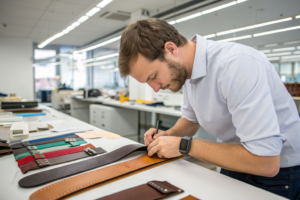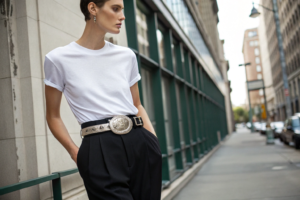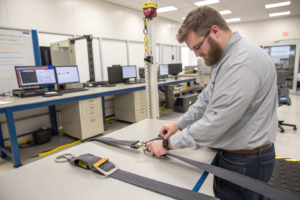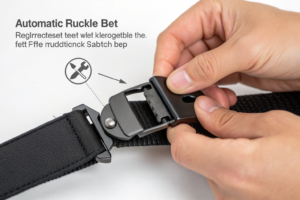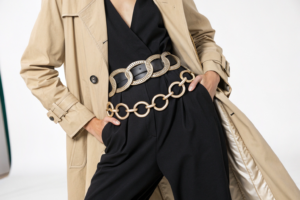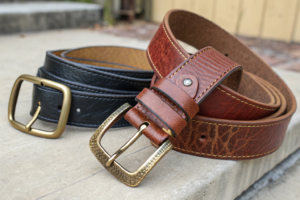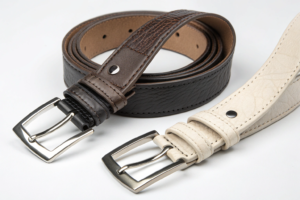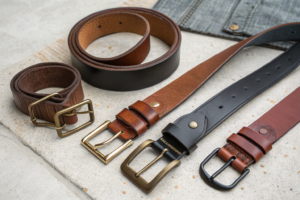Alibaba has become one of the go-to sourcing platforms for global belt buyers—from boutique retailers to supermarket chains. However, with thousands of listings, choosing the right supplier can feel like walking through a maze. Not every “gold supplier” guarantees consistency, and not every cheap offer is a good deal.
The most effective way to find reliable belt suppliers on Alibaba is to understand platform filters, validate supplier credentials, communicate clearly, and use Alibaba’s protection tools like Trade Assurance.
As a belt manufacturer ourselves, we’ve helped many clients who previously made sourcing mistakes on Alibaba. In this article, I’ll share what really matters when vetting a potential belt supplier—so you can avoid fraud, delays, and product quality issues.
What Alibaba Badges Indicate a Verified Belt Supplier?
One of the most important things to look at on Alibaba is the seller's profile and badge indicators. These aren't just visual icons—they reflect audited credentials, transaction history, and factory verification.
Focus on suppliers with 'Verified Supplier', 'Trade Assurance', and strong transaction metrics when sourcing belts.

What Is the “Verified Supplier” Badge?
The Verified Supplier badge means the company has passed an on-site check or video verification by a third-party inspection firm authorized by Alibaba. These firms include SGS, TÜV Rheinland, and BV. This check includes:
- Factory address and ownership
- Business license verification
- Product line photos and videos
Avoid suppliers without this badge if you're ordering over 500 units.
What Other Profile Details Matter?
- Years active on Alibaba: More than 3 years usually means stable operations
- Response rate: A high percentage shows they care about buyer communication
- On-time delivery rate: Over 95% is a good standard
- Transactions: A supplier with high US$ transaction volume in belts is usually trustworthy
Always click “Company Overview” on a supplier’s profile to see their core competencies, certifications, and export markets.
How to Use Trade Assurance to Protect Your Belt Orders?
Alibaba's Trade Assurance is like having insurance for your transaction. It protects you if the supplier fails to deliver on time or doesn’t match product specifications.
Always place orders through Trade Assurance to secure payment refunds in case of quality, shipment, or production issues.

What Does Trade Assurance Cover?
According to Alibaba Trade Assurance FAQs, it protects:
- Product quality: If the belts don’t meet the agreed specs
- Shipping time: If the supplier ships late without agreement
- Refunds: If the order is canceled due to breach of contract
You can request that product specs (belt width, leather type, packaging method) be written directly into the Trade Assurance order contract.
How to Structure a Safe Trade Assurance Order?
- Use clear PI (Proforma Invoice) with product photos, materials, and buckle specs
- Specify belt quantity tolerance (e.g., ±5%)
- Define inspection terms before payment
- Choose Alibaba’s escrow payment method for added security
Some buyers use services like Inspection Services by QIMA to verify quality before releasing the final payment.
What Red Flags Should You Avoid When Choosing Suppliers?
Not all suppliers are as legitimate as they appear. Some are trading companies posing as factories. Others provide outdated photos or claim certifications they don’t have.
Avoid belt suppliers who lack certifications, fail to provide factory videos, have inconsistent communication, or show poor-quality product listings.

What Are the Common Red Flags?
- Fake certifications: Ask for scanned documents and cross-check with certifying agencies
- No customization ability: A real factory can make color changes or add logos
- Unrealistic pricing: If belts are priced at $0.20, quality is likely unacceptable
- Vague answers: If they can't explain material composition, buckle grade, or stitching process, be cautious
Tools like ImportYeti let you check if a supplier has exported to other major buyers in your country.
Are Trading Companies Always a Problem?
Not always. Some trading companies work with reliable factories and offer good communication. But if you need direct production control, custom packaging, or fast sampling, you should prioritize manufacturers with in-house production.
How to Communicate Effectively with Alibaba Belt Factories?
Communication is key to building trust. Many buyers assume that Alibaba chat is enough—but it’s not. Detailed communication saves time, prevents misunderstandings, and ensures you get exactly what you expect.
Use clear specs, tech packs, photos, and defined timelines when talking to belt suppliers. Always confirm samples before production.

What Info Should You Share in First Contact?
- Belt type (PU, leather, canvas, webbing)
- Buckle style (pin buckle, plate buckle, snap)
- Target price range and order quantity
- Desired certifications (REACH, CPSIA, etc.)
- Custom packaging or branding needs
If possible, include tech pack templates or your logo in vector format. This speeds up sampling and cost estimates.
How to Avoid Miscommunication?
- Use short, clear English sentences
- Confirm all specs in writing and photos
- Ask for HD photos and videos of samples
- Clarify shipping method (EXW, FOB, DDP)
- Confirm production and delivery lead time in days—not “within the month”
Some buyers use tools like Loom or WeTransfer to explain belt specifications visually.
Conclusion
Sourcing belts on Alibaba doesn’t have to be risky—if you know what to look for. Focus on verified suppliers, use Trade Assurance, watch out for red flags, and build detailed communication from the start.
A trustworthy supplier won’t just send belts—they’ll send confidence. Whether you’re ordering 500 PU belts or 100,000 braided belts, due diligence can save your season. And if you're still unsure, we at StylishBelts are always here to help bridge the gap between sourcing and success—transparently, professionally, and reliably.

